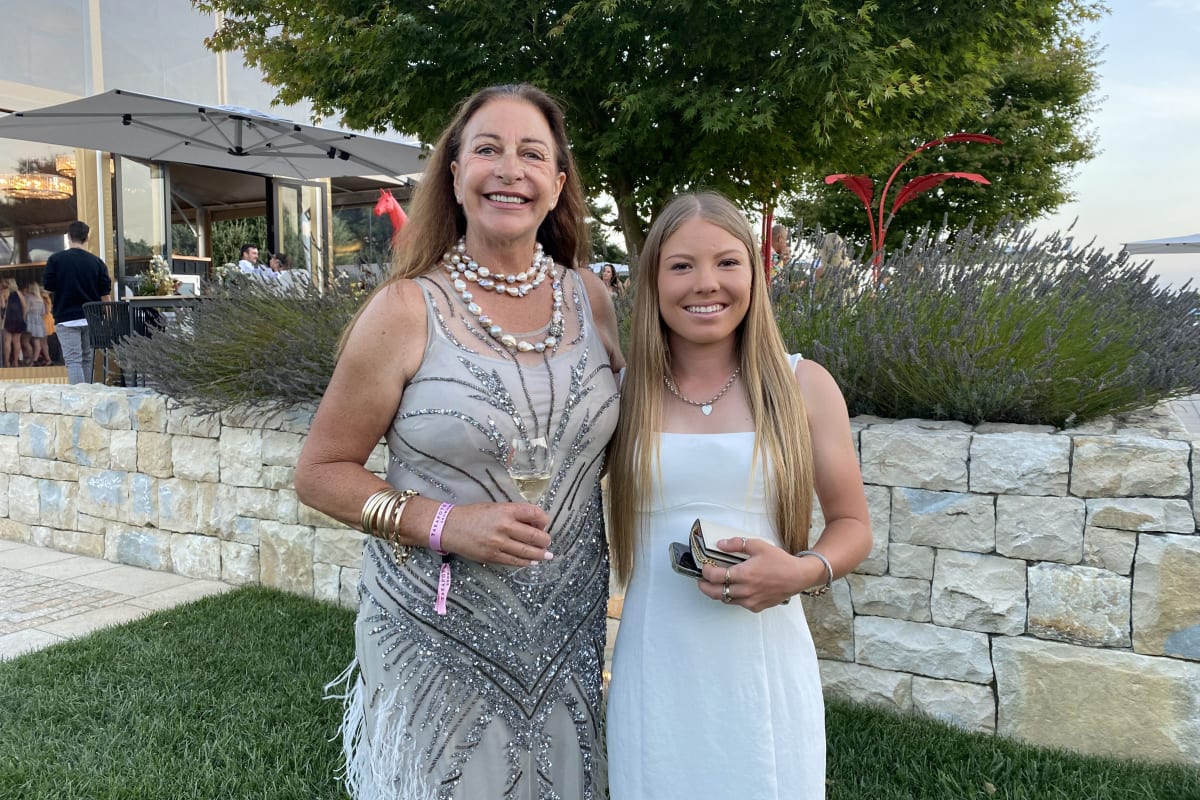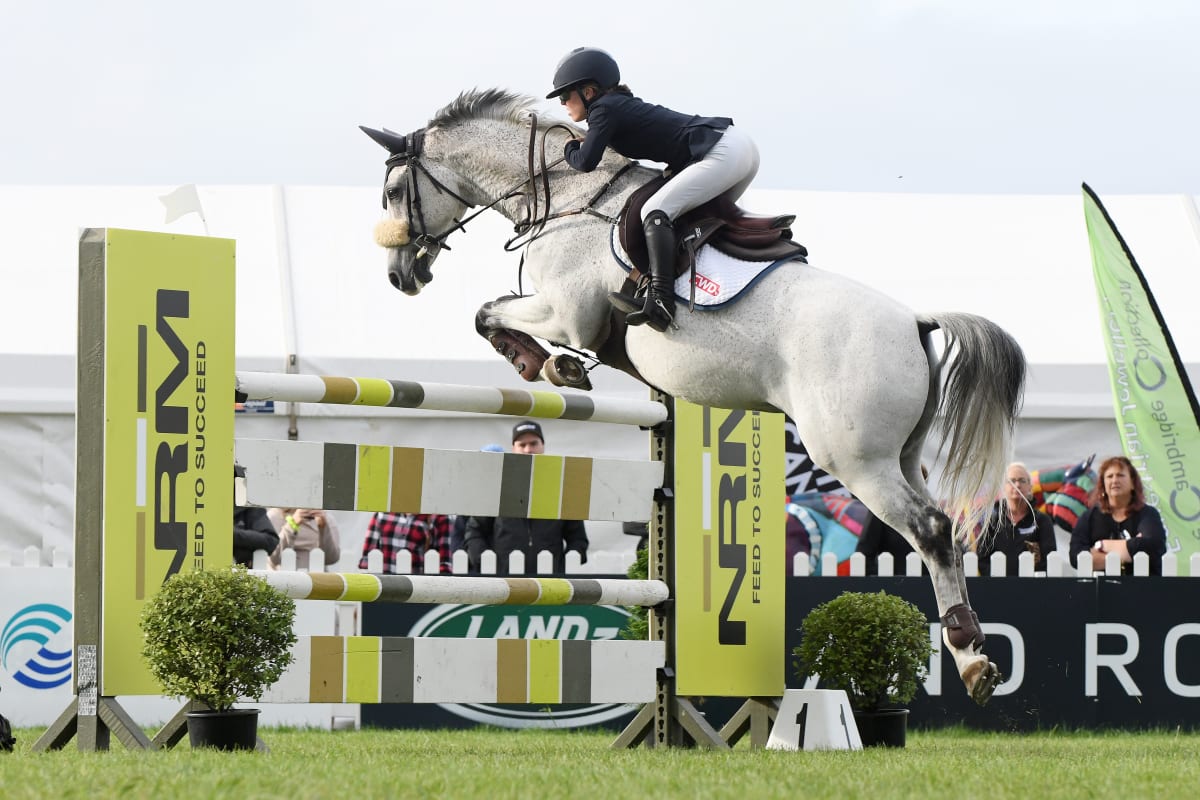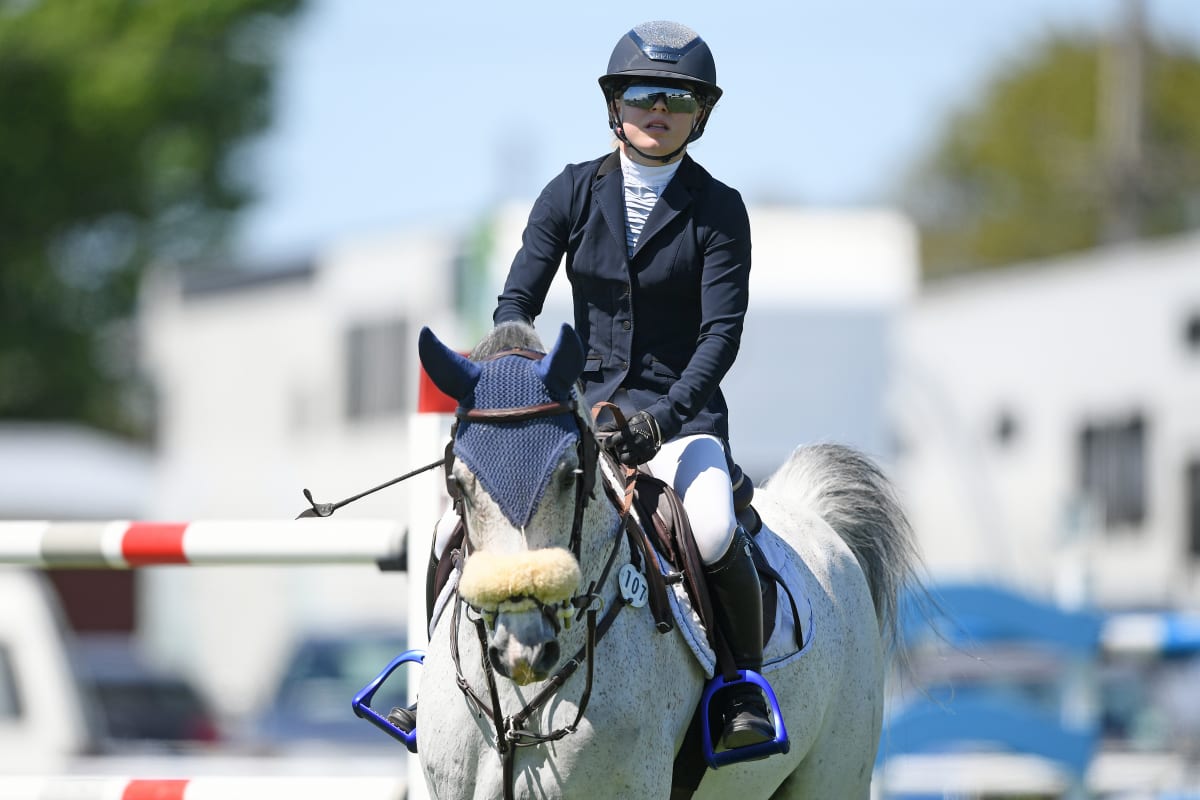Showjumper’s Dream Ride – from Orphanage to Olympics
Olympics
From humble beginnings in Siberia, Taupo teenager Annabel Francis has taken the New Zealand showjumping world by storm and is on the verge of her first Olympics.
There’s a couple of things which make Annabel Francis stand out in her world of showjumping.
The first is physical. As her coach, Jeff McVean, cryptically put it, “She’s not small; she’s tiny”.
Her mother, Debbie, says she’s 1.56m tall, and that might be on her tip-toes. So McVean’s on the money. Francis tips the scales at 42kg.
The second thing is her utter determination to succeed in a tough, gruelling sport. She has buckets of it and now, at just 18, she’s eyeing a trip to the Tokyo Olympics later this year, assuming it goes ahead.
Overall victory in the six-event World Cup showjumping series, including the finals in Auckland earlier this year, confirmed her distinct promise. She is at the top of the New Zealand-based Olympic hopefuls.
And to show that was no fluke, Francis finished her season last weekend with victory at the Premier League series finals championship show in Masterton, aboard her German import La Quinara – or ‘Queenie’ – where she won three series crowns as well as picking up minor placings.
She added the title to an already bulging trophy cabinet that also includes the World Cup NZ Series, the Young Rider Series and the Top-ranking Mare award from the weekend.
“I just had a feeling this would be my season,” she says. “It really has been a good one.”
You could say.
Oh yes, then there’s her backstory, which is far removed from that of her friends and rivals.
Francis was born in Russia. Debbie brought her to New Zealand from an orphanage in Novokuznetsk in Siberia. She was just three months old.

Older sister, Charlotte, had been adopted from an orphanage in Archangel in north-west Russia. She was nine months at the time and Debbie then returned a year-and-a-half later for Annabel.
Her husband, noted Canterbury horse man Wayne Francis, had died of cancer and they had been trying to have children.
One day she confided in a friend that above all she wanted children. “She said there’s plenty of children out there who need a mother,” Debbie recalls.
Within New Zealand, officials categorised her as a single mother, although widowed, and therefore ineligible to adopt.
“That annoyed me. I thought that was a stupid thing,” she says. “So I thought, okay I’ll find somewhere that doesn’t mind, and I had the wherewithal to support the children.”
She contacted the Inter-Country Adoption New Zealand, or ICANZ, in Auckland.
It took a couple of years before she was cleared to collect Charlotte, who is now 20. It was a lengthy process and Debbie admits there were times she had worries about what on earth she was doing. “I’d be lying if I said I didn’t have them.”
And she makes it clear she was not rescuing the girls from desolate, poverty-stricken environments out of a Dickens novel.
“The children were warm, well fed, and had lovely toys. It was like walking into your mother’s kitchen, lovely smells, homemade cooking. It wasn’t a horror story,” Debbie Francis says.
Fast forward through a good education, primarily in Christchurch, before the family moved north to Kinloch, on the western side of Lake Taupo. The move was to enable Annabel to be in a better location for her showjumping development.
At St Margaret’s College in Christchurch, Annabel had her first significant decision to make: she showed promise at a couple of sports, notably gymnastics – which involved a heavy time commitment in a national squad environment – along with school and the horses.
“When she was about 10, I said ‘you’re going to have to make a choice. You can’t do justice to riding and gym,” Debbie says.
Annabel was torn, so Debbie said: “What would you hate to not have in your life?”
“She went away, thought about it and came back and said: ‘It’s the horses’.”

The sisters were surrounded by them. Mum had been a dressage rider and there were stables. Debbie laughs: “The poor child had no choice, really”.
Such has been Annabel’s progress since then, she is now within reach of realising an Olympic dream. Charlotte, now 20, also rides but is now studying veterinary science.
Despite their genetic backgrounds, they are “proper sisters”, their mother says. “They’ve got each other’s back, they’re great friends, they fight over clothes, things like that.”
Annabel did correspondence school after moving north. “But I thought horses were a fulltime job for me, so I stopped doing school,” she says.
She jumped at the top level for the first time at the Wairoa Show in 2018 – “I was nervous, but got third and knew I could definitely compete.”
Usually Olympic equestrian teams have a large overseas-based component. But Covid has had a seriously detrimental effect to events around Europe, with cancellation of annual events around the continent, so form is a tricky element to assess.
New Zealand have qualified a team of four – three, plus one substitute, who can be called on in the event of injury or illness.
Francis is very much a contender, especially after the World League series success aboard her horse, Carado GHP, an 11-year-old imported from the Czech Republic and, at 15.1 hands, relatively small. The Horse of the Year Show, which could have been a key determinant for the selectors, had to be called off.
In the six-leg national series, Francis record three victories, three second placings and two fourths aboard Carado and her other hose, German import La Quinara, a 12-year-old standing 16.2 hands.
“They have different personalities,” Francis says. “La Quinara is quite brave, Carado a little harder to ride. He’s quite spooky and you have to ride him a lot harder at times.”
If she is chosen for the Games, she won’t get to choose which horse to take. That’s the job of the selectors, albeit with some input from the rider.
Gently pushed, she concedes La Quinara would likely be her preference.
But that’s getting ahead of the story.

At the North Island championships in Hawera, Francis took the quinella, first and second, and by the end of the season she was clearly the country’s best domestic-based showjumper.
Francis is devoted to the discipline, keeps journals, studies breeding of the top showjumpers and is keen to pursue a career in breeding in the future.
She wanted to get to Gothenburg, Sweden, for the World Cup final as the New Zealand contender, but Covid rubbed that out. Next year, hopefully, that’s on her target list.
McVean, a former Australian Olympic representative, and father of former leading New Zealand jumper Katie (who’s now living in Canada), is highly impressed with Francis.
“I knew she had talent just watching her, and determination. It’s just a matter then of getting it right – and being lucky with the right horses. Without that you’re nobody,” he says.
He points out far from being a disadvantage, Francis’ diminutive stature can be a real asset. The horses benefit from carrying a lighter weight.
McVean is not worried that she’ll burn out after such a rapid rise and not yet 20.
“She doesn’t faze out worrying about everybody else. It’s all about getting it right for herself,” he says.
He knows she’s daft about horses and she gobbles up whatever footage she can gather from the top European riders and competitions.
“It’s a sport we all learn from every day because we’re dealing with animals. And if we’re not learning, then something’s wrong with us,” McVean adds.
He’s adamant Francis can foot it at the very highest level, but needs a couple of warm-up events to tune up before Tokyo, if she’s picked.
The showjumping team nominations are expected to go to the New Zealand Olympic Committee in mid-June for final ratification.
Of the other equestrian disciplines, eventing and dressage both have the same nomination date. Eventing will take a team of three and a reserve, while there is one spot for an individual in the dressage.
